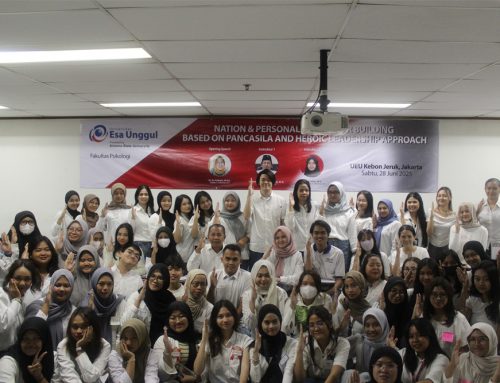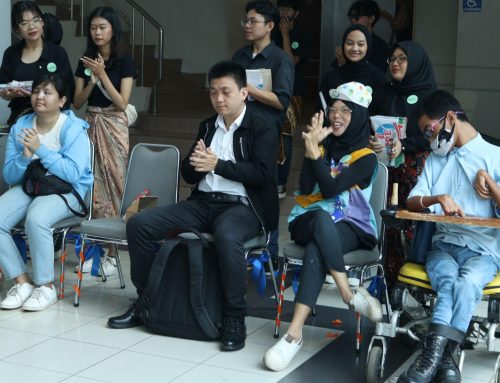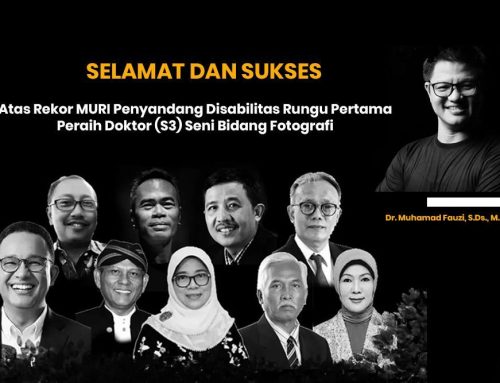
Esaunggul.ac.id, World AIDS Day is celebrated every 1 December. This year marks the 36th anniversary since the event was first held in 1988. Then, why is World AIDS Day important to be commemorated, what is the theme of 2024, and how is the development of the fight against this deadly AIDS disease? The following is a summary of an interview with Prof Maksum Radji, Professor of Microbiology, Pharmacy Study Programme, FIKES, Universitas Esa Unggul Jakarta.
In the beginning of this conversation, Prof Maksum explained that AIDS (Acquired Immune Deficiency Syndrome) is a series of infectious symptoms that occur due to damage to the human immune system. This damage is caused by Human Immunodeficiency Virus (HIV) infection. Meanwhile, the theme of World AIDS Day 2024 is ‘Take the rights path: My health, my right!’, which means ’Take the right path: My health, my right!’.
‘According to WHO, this theme was chosen to invite all of us to pay attention to the right to health for everyone, including people with AIDS. In addition, the aim is to remind everyone of the dangers of AIDS. AIDS is a deadly disease that can be transmitted from one human to another, especially through contact or intimate relationships,’ he explained.
Prof Maksum also added that WHO invites all parties, both governments and communities, to fight for the right to health equity by addressing the disparities that hinder progress in efforts to end AIDS. This is expected to make the world free from the threat of AIDS as a public health problem by 2030.
Citing data from WHO in 2024, Prof Maksum explained that the number of people living with HIV worldwide will reach around 39.9 million by the end of 2023, consisting of 38.6 million adults and around 1.4 million children aged 0-14 years. It is estimated that every year, around 630,000 people die from AIDS worldwide.
What about HIV-AIDS Cases in Indonesia?
In response to this question, Prof Maksum explained that according to data from the Indonesian Ministry of Health, the number of people with HIV-AIDS in Indonesia in 2024 is estimated to reach 503,201 people. As of June 2024, 351,378 people with HIV have known their HIV status, and 217,482 of them have received antiretroviral (ARV) treatment.
Read More: Ketua KPI Jadi Narasumber Kuliah Umum di Acara BC Fair 2024
Can We Get Rid of the HIV Epidemic?
According to Prof Maksum, this question has been raised since the beginning of the epidemic in the 1980s. With more than 1.3 million new infections each year, the HIV epidemic is still ongoing. Despite various efforts to find HIV drugs and vaccines, to date, the HIV epidemic is still difficult to contain. The health world is not yet on track to achieve the UN’s ambitious goal of ending HIV/AIDS by 2030.
‘However, there is renewed optimism among infectious disease experts following the results of clinical trials of a new alternative drug, Lenacapavir, as the standard for HIV prevention. Produced by Gilead Science, California, lenacapavir was 96% effective in preventing HIV infection in more than 3,200 volunteers across multiple sites in Argentina, Brazil, Mexico, Peru, South Africa, Thailand and the United States. These results are consistent with previous clinical trials of lenacapavir among 5,300 women in South Africa and Uganda. According to information reported at the AIDS 2024 conference in July in Munich, lenacapavir clinical trial results showed 100% efficacy, after Gilead Sciences revealed that none of the women who received the drug since clinical trials began in August 2021 contracted HIV. The development of this new anti-HIV drug is a promising breakthrough. The long-acting Lenacapavir drug, which is given by injection twice a year, is a new alternative to the current standard of HIV infection prevention,’ he said.
Prof Maksum added that Lenacapavir is actually not a new drug. It has been approved by the FDA in the United States for the treatment of HIV that is resistant to various antiretroviral drugs since 2022. However, the latest clinical trial is the first to focus on HIV prevention. The results of the clinical trial showed that Lenacapavir is highly effective in preventing the transmission of HIV infection through sex.
How is HIV Vaccine Development Going?
Prof. Maksum explained that the best prevention against infectious diseases is through vaccination programmes, including for HIV infection. This approach is very important considering that although drug development for HIV has been carried out for the past 30 years, there are still various obstacles. In addition, HIV drugs can have side effects, are expensive, and difficult to access in some countries. They are also at risk of becoming resistant, which can reduce their effectiveness in treating HIV.
‘Researchers therefore believe that an HIV vaccine is the most effective preventive measure to control or completely eliminate new HIV infections. However, after nearly four decades, as of July 2024, no HIV vaccine has been approved by the Food and Drug Administration in the United States or any other country. Scientists are still working to develop an HIV vaccine using several current approaches, including an HIV vaccine based on RNA technology and other innovative strategies. HIV vaccine researchers recognise that there are many obstacles in developing an HIV vaccine, including the high mutation rate of the HIV virus, the many variants of the HIV virus and its ability to evade the human immune system, as well as the limited number of experimental animals and insufficient funding, and obstacles in recruiting volunteers for HIV vaccine clinical trials.
What the 2024 World AIDS Day Theme Means
According to Prof Maksum, the meaning of the World AIDS Day 2024 theme is that access to HIV prevention, treatment and care services is a human right. Protecting this right means ensuring that health services are available to every individual without any discrimination. Equal access to HIV prevention is key to stopping new HIV infections.
‘Negative stigma and discrimination against people with HIV-AIDS can undermine efforts to fight AIDS. Therefore, providing access to optimal treatment can save the lives of people with HIV-AIDS. Through early diagnosis and consistent antiretroviral therapy, people with HIV-AIDS can lead healthy lives and allow no risk of transmission, and protect the community. By protecting and guaranteeing everyone’s right to health, especially for people with HIV-AIDS, we can actually reduce new HIV infections, so that the world can end the AIDS epidemic. Hopefully we can achieve our ultimate goal of an HIV-AIDS free generation,’ he concluded to end the conversation.
Choose Esa Unggul University, an Excellent PTS with International Standards
Universitas Esa Unggul (UEU) is now part of the Cintana Alliance, a global network of universities committed to developing and strengthening high-quality academic programmes. This affiliation shows that UEU is an excellent private university that has implemented international standards.
With the support of Arizona State University (ASU), Cintana Alliance supports UEU in realising its vision to become an international university, as well as providing quality education to students across Indonesia.
Cintana Alliance members receive a range of benefits, including access to Arizona State University resources, such as curriculum, expertise in digital learning, leading research programmes, and accelerated degree pathways and master’s programmes that allow students to earn credentials or degrees from ASU.
By collaborating with ASU, Cintana provides Universitas Esa Unggul with the best strategy, technology, and management, supported by experienced experts who have contributed to building and developing universities around the world. So let’s hurry up and join Universitas Esa Unggul!







